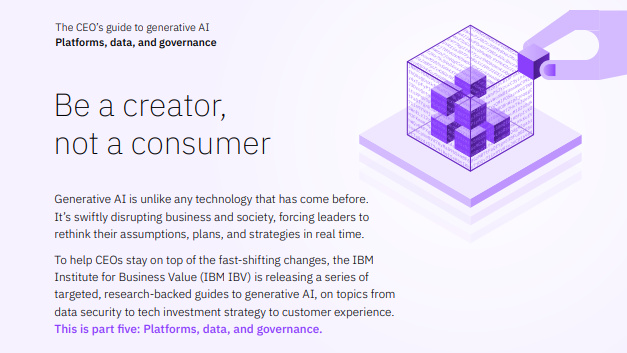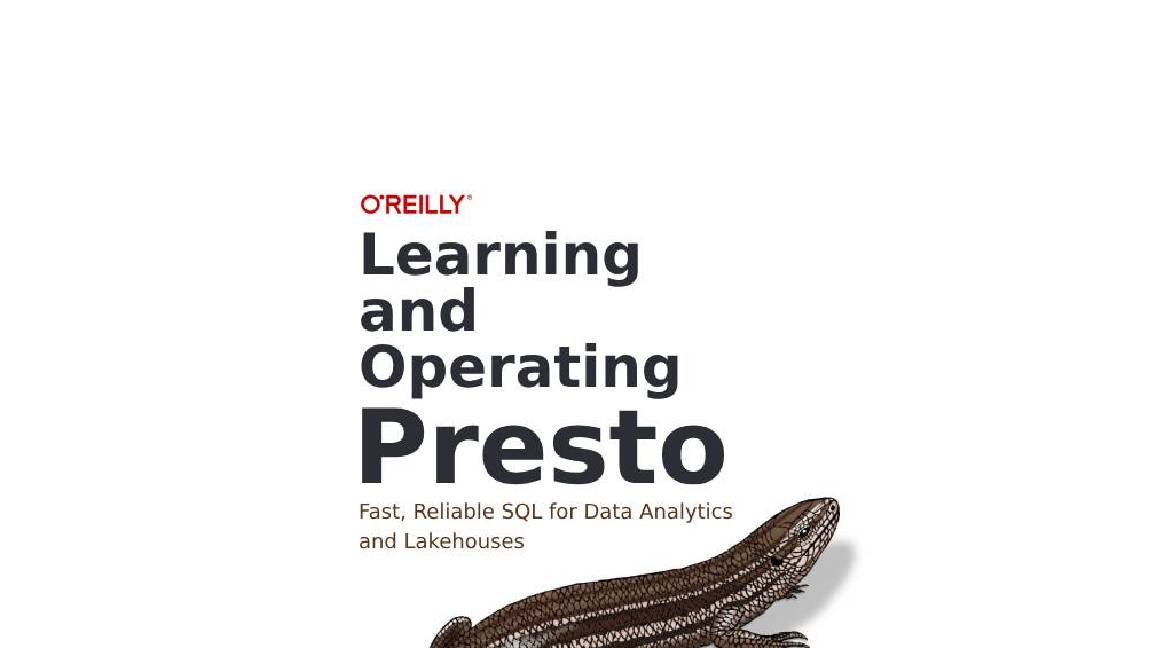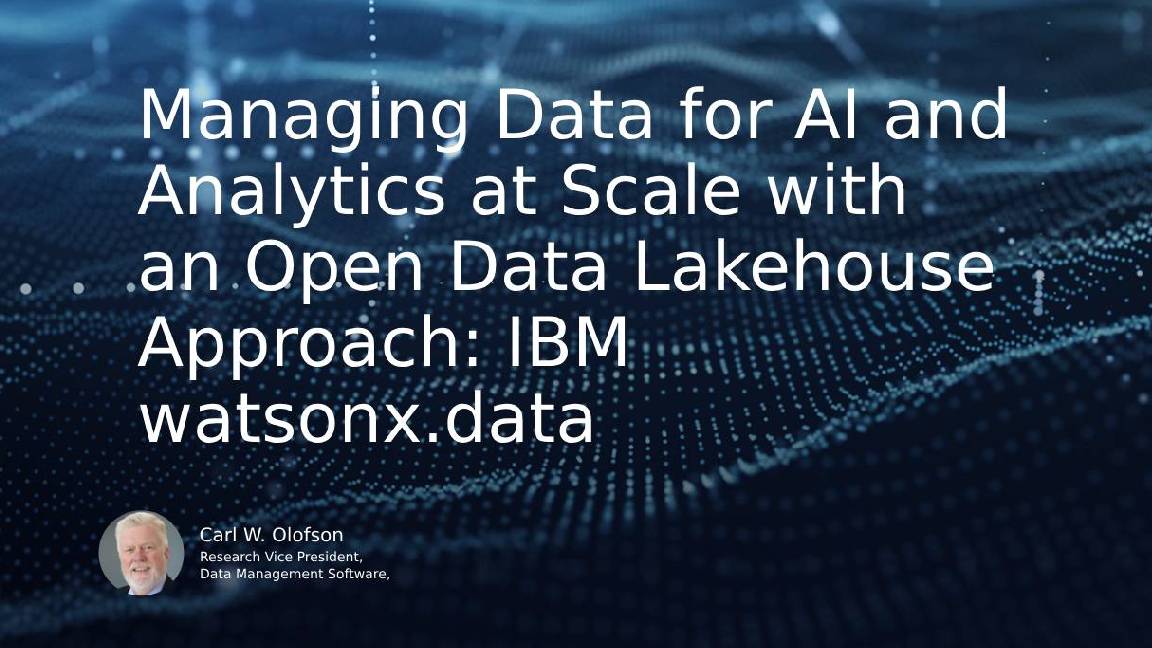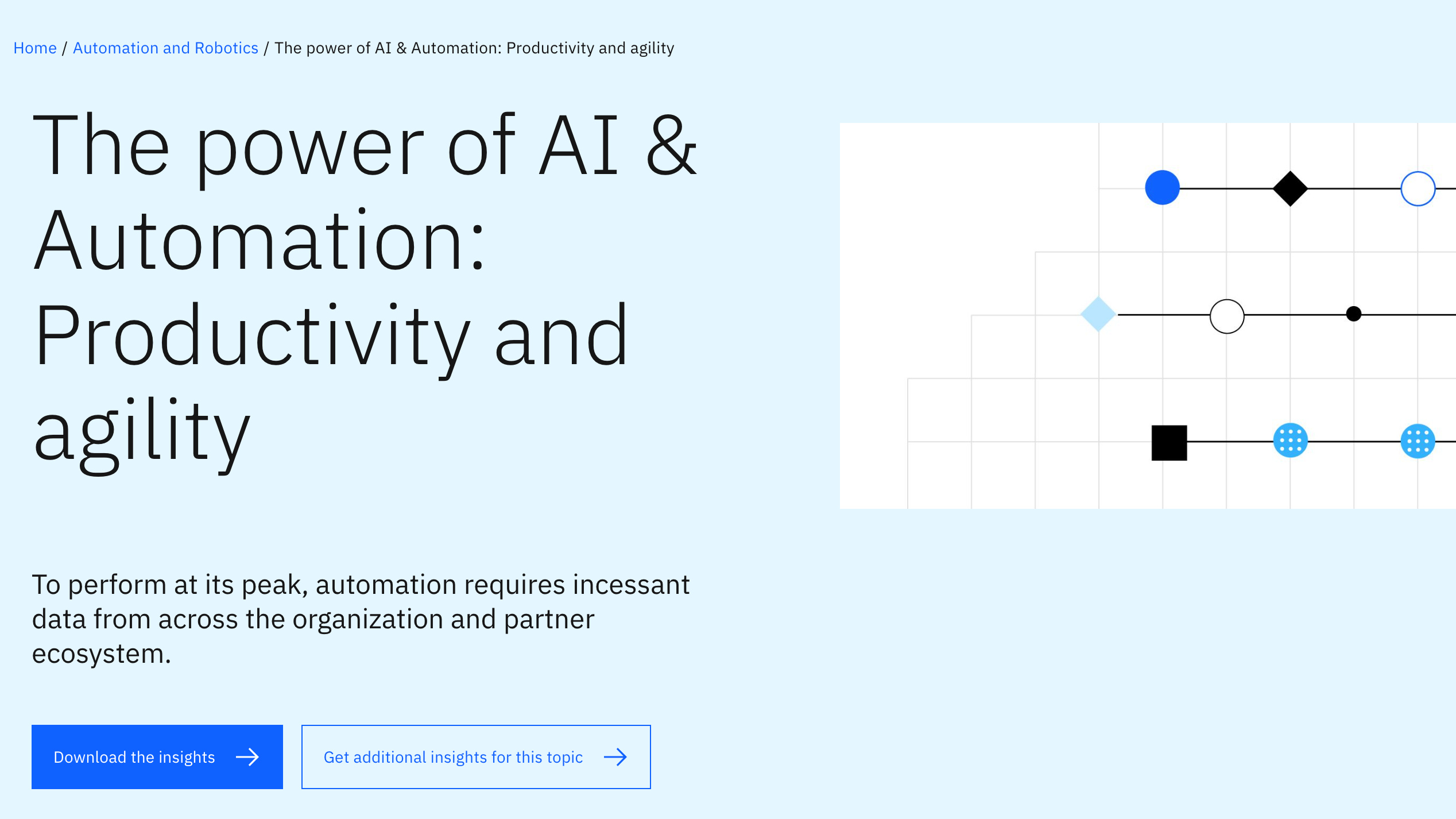Adding value to your business with data
How to stay ahead of the curve and embrace the data revolution

Data is perhaps the most important asset for 21st century organisations, but despite the well-documented case for a good data strategy, many organisations don’t know how to manage it properly. This is, in part, due to the huge amount of data now available to organisations and the number of often chaotic sources it comes from.
Data can fuel successful digital transformation, but only if you’re making the most of what you have. It’s a case of finding the quality in the quantity, and gleaning useful insights from it. Any business that’s overlooking its data won’t be able to unlock its true potential and reap the long-term benefits.
The age of big data
Nowadays, pretty much everything you do online involves some sort of data transfer. Whether that’s simply the cookies you opt into on a website or more active participation with a sign-up form to a digital service. We all have a digital footprint which, when added together with everyone else’s online activity, makes for an unprecedented and ever-growing mountain of information.
This wealth of data generated by customer activity and collected by individual organisations can be of huge value to their operations and decision-making – it can help them spot trends, understand their customers in more depth than ever before and create great customer experiences.
Small amounts of data can be fairly straight-forward to manage, especially if it comes from structured sources, but when it is being collected on a huge scale, known as ‘big data’, it becomes increasingly difficult to utilise in a valuable way. This is particularly difficult as data sources and collection methods diversify. Rather than being manually collected by employees within an organisation, most data is now captured in large quantities by systems and networks, and many of these systems lack the organisation and structure needed to process the data properly.
Embracing AI-powered analytics
AI is positioned to transform many areas of our lives – from powering smart homes to advancing cybersecurity, and it now plays a crucial role in the world of data collection and analysis. The more data an organisation can sort through, the more likely it is to find valuable insights to inform crucial business decisions, but often the sheer quantity of data can feel like more of a burden than an asset. We now have more information than any human could possibly manage, and without the help of our intelligent machine friends, much of it would go to waste.
AI has the ability to quickly process and analyse huge amounts of data, meaning that nothing goes unnoticed. Machine-learning algorithms can be programmed to recognise patterns and changes much as a human would – allowing for fluctuations but spotting the real trends. Some of the more time-consuming and monotonous data tasks can also be automated with AI, freeing up resource to focus on business strategy. Data can also be used, in turn, to improve the capabilities of your AI offerings. For example, chatbots are now playing an increasingly important role in customer service. The more valuable your data insights from your customers, the more accurate and useful you can make these systems. In many cases, chatbots are so sophisticated that it’s increasingly hard to tell whether you’re speaking to a machine or a human.
Dot the i's and cross the t's
You may be clear on the importance of data and the role you want it to play within your organisation, but you must ensure you are handling it correctly. As demand for data has increased, so have data privacy regulations, and it’s vital to ensure you’re getting things right. Data breaches can be financially disastrous and can ruin the reputation of your organisation. By now, we’d hope you’re aware of GDPR, which came into effect in 2018, but how do you ensure you are compliant and operating in a way that ensures the safety of your organisation, employees and customers?
A rigorous data governance strategy is key to success in this area. This means creating a system of technologies, processes and controls to ensure you are getting the most value out of your information while reducing the risk of breaching data regulations. Data governance isn’t just about safeguarding your data, it’s about ironing out the details of your strategy to ensure that you don’t end up with inefficiencies, wasted resources and data silos – which can build up when you lack a centralised, regulated system. An organised system can also prevent the misinterpretation and misuse of data within your organisation.
How healthy is your data?
Whether you choose a policy of data-led decision-making or not can make or break your business, and the quality of your data is as vital as what you decide to do with it. A good indication of the health of your data is if it is valid, complete and of a high enough standard that you feel confident making important decisions based on it. This means ensuring sources are relevant to your business goals, reliable and consistent, and that the platforms you use are performing optimally.
If you’re struggling with data overload or poor quality data, and want to ensure you’re getting the information that’s most valuable to your organisation, you might want to enlist expert help. One such service provider is Merit, who provides bespoke software and business intelligence for B2B brands.
Merit’s team of data experts use a combination of data collection and processing tools to crunch huge amounts of raw data and make it coherent and valuable to organisations. Their advanced machine learning and AI tools de-dupe, categorise and enhance harvested data. They use web watching to monitor over 100,000 web pages to instantly identify industry-specific news, and telephone research to obtain additional information to enhance data sets. They also offer customised apps, including segmentation tools and machine-learning applications that can process and manage large data sets quickly and efficiently.
The data revolution may seem daunting, but with the right support and tools in place, strategically utilised data can be transformative to your business.
Find out more about how Merit can help you on your data journey
Get the ITPro daily newsletter
Sign up today and you will receive a free copy of our Future Focus 2025 report - the leading guidance on AI, cybersecurity and other IT challenges as per 700+ senior executives
ITPro is a global business technology website providing the latest news, analysis, and business insight for IT decision-makers. Whether it's cyber security, cloud computing, IT infrastructure, or business strategy, we aim to equip leaders with the data they need to make informed IT investments.
For regular updates delivered to your inbox and social feeds, be sure to sign up to our daily newsletter and follow on us LinkedIn and Twitter.
-
 Empowering enterprises with AI: Entering the era of choice
Empowering enterprises with AI: Entering the era of choicewhitepaper How High Performance Computing (HPC) is making great ideas greater, bringing out their boundless potential, and driving innovation forward
By ITPro
-
 The CEO's guide to generative AI: Be a creator, not a consumer
The CEO's guide to generative AI: Be a creator, not a consumerWhitepaper Innovate your business model with modern IT architecture, and the principles of trustworthy AI
By ITPro
-
 Learning and operating Presto
Learning and operating Prestowhitepaper Meet your team’s warehouse and lakehouse infrastructure needs
By ITPro
-
 Scale AI workloads: An open data lakehouse approach
Scale AI workloads: An open data lakehouse approachwhitepaper Combine the advantages of data warehouses and data lakes within a new managed cloud service
By ITPro
-
 Managing data for AI and analytics at scale with an Open Data Lakehouse approach
Managing data for AI and analytics at scale with an Open Data Lakehouse approachwhitepaper Discover a fit-for-purpose data store to scale AI workloads
By ITPro
-
 The power of AI & automation: Productivity and agility
The power of AI & automation: Productivity and agilitywhitepaper To perform at its peak, automation requires incessant data from across the organization and partner ecosystem
By ITPro
-
 A guide to help you choose the UPS battery backup for your needs
A guide to help you choose the UPS battery backup for your needsWhitepaper Download this guide and stay connected with a UPS that's free of interruption or disturbance
By ITPro
-
 Managing data for AI and analytics at scale with an open data lakehouse approach: IBM watsonx.data
Managing data for AI and analytics at scale with an open data lakehouse approach: IBM watsonx.datawhitepaper Eliminate information silos that are difficult to integrate
By ITPro


